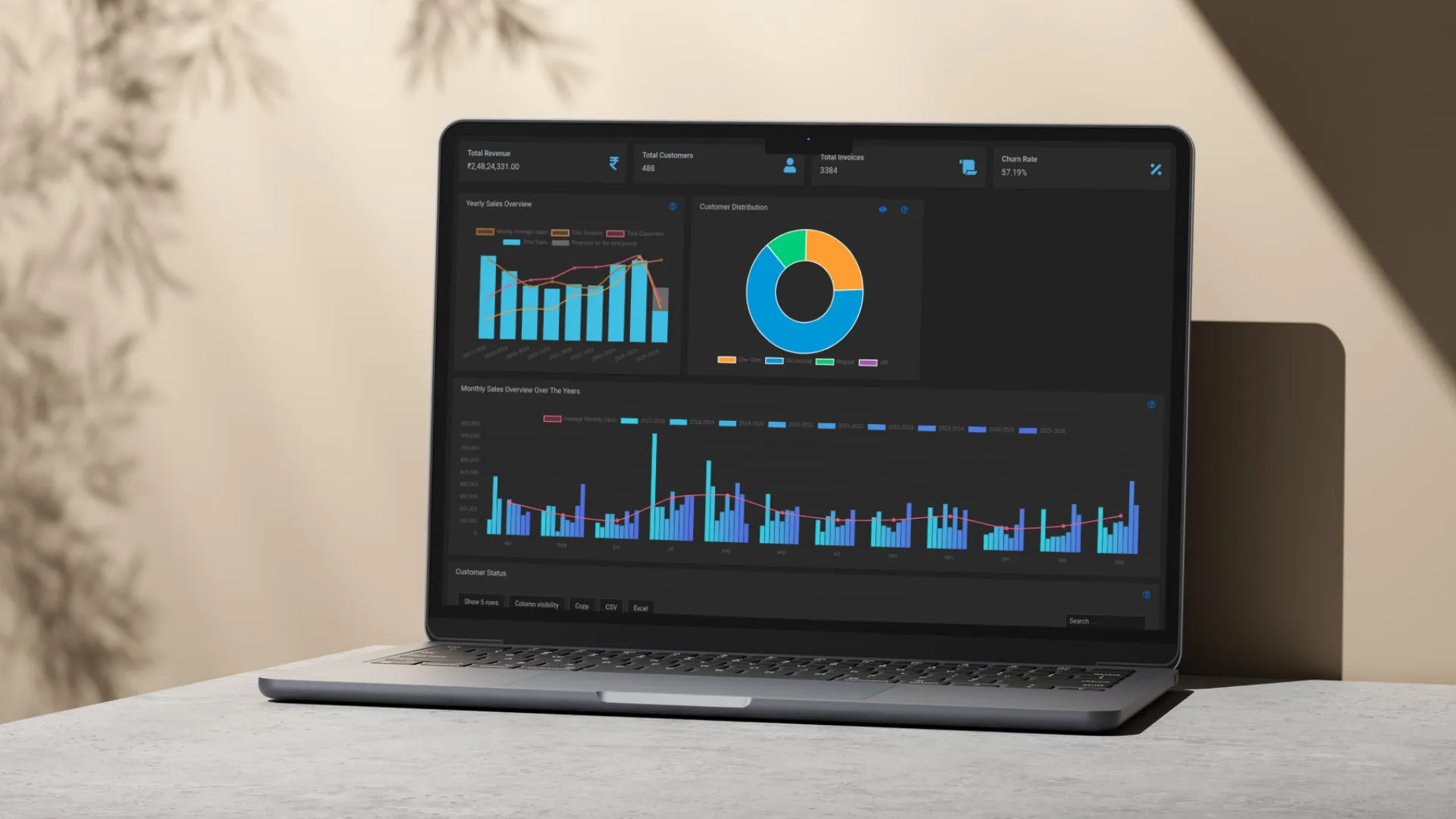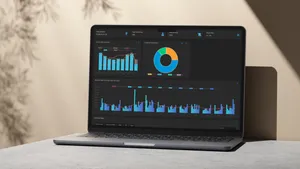Building Custom ERP Systems: Why Off-the-Shelf Solutions Don't Always Work for Indian SMEs
Explore why custom ERP solutions are becoming essential for Indian SMEs, the limitations of off-the-shelf systems, and how tailored solutions can drive business growth in the unique Indian market context.

Sariful Islam

Enterprise Resource Planning (ERP) systems have become the backbone of modern business operations, integrating various departments and streamlining processes. While multinational corporations have long recognized their value, Indian Small and Medium Enterprises (SMEs) are increasingly discovering that off-the-shelf ERP solutions often fall short of meeting their unique requirements. This article explores why custom ERP development is becoming a critical consideration for Indian SMEs and how it can provide a competitive advantage in today’s dynamic market.
Understanding the Indian SME Landscape
India’s SME sector is incredibly diverse, ranging from traditional manufacturing units to modern tech-driven service providers. According to recent statistics, SMEs contribute approximately 30% to India’s GDP and employ over 110 million people. These businesses operate in a uniquely Indian context, dealing with:
- Complex GST regulations and frequent tax policy changes
- Regional diversity in business practices and languages
- Hybrid business models combining traditional and modern approaches
- Limited IT infrastructure and technical expertise
- Budget constraints and cost-sensitive operations
- Multi-state operations with varying compliance requirements
This unique operational environment creates specific challenges that standardized, international ERP solutions struggle to address effectively.
The Limitations of Off-the-Shelf ERP Solutions
1. One-Size-Fits-All Approach
Pre-packaged ERP systems are designed to serve a broad market, which means they come with numerous features that an Indian SME might never use while lacking specific functionalities critical to their operations. A textile manufacturer in Surat has vastly different requirements than a pharmaceutical distributor in Mumbai, yet off-the-shelf solutions attempt to serve both with the same feature set.
2. Excessive Costs
The pricing model of international ERP vendors often includes costs for features that Indian SMEs don’t need. Licensing fees, per-user charges, and annual maintenance costs can quickly escalate, making these solutions financially unviable for smaller businesses. When you factor in the cost of unused features, the return on investment becomes questionable.
3. Compliance and Localization Challenges
India’s regulatory environment is unique and constantly evolving. The introduction of GST, for instance, required significant changes in accounting and inventory management systems. Off-the-shelf solutions, especially those from international vendors, often lag in implementing Indian compliance requirements or charge premium rates for localization.
4. Integration Nightmares
Many Indian SMEs have already invested in specific software solutions for accounting (Tally), inventory management, or customer relationship management. Off-the-shelf ERPs often have limited or expensive integration capabilities with these existing systems, forcing businesses to either abandon their current investments or operate in silos.
5. Inflexibility and Customization Costs
When businesses grow or pivot, they need their ERP systems to adapt. However, customizing off-the-shelf solutions is often expensive, time-consuming, and dependent on vendor support. Many businesses find themselves locked into rigid workflows that don’t align with their actual processes.
The Case for Custom ERP Development
1. Tailored to Exact Business Needs
A custom ERP system is built from the ground up to match your specific business processes, not the other way around. For example, a garment manufacturer will need a system that can handle their unique production workflows, supply chain intricacies, and quality control measures. This alignment eliminates the need for workarounds and improves operational efficiency.
2. Cost-Effective in the Long Run
While the initial investment in custom ERP development might seem higher, the total cost of ownership is often lower than off-the-shelf solutions. You pay only for the features you need, avoid recurring licensing fees for unused functionality, and have greater control over future modifications without vendor dependency.
3. Built-in Indian Compliance
Custom ERP systems can be designed with Indian regulations at their core. Whether it’s GST calculations, TDS compliance, or state-specific requirements, these can be natively integrated rather than bolted on as afterthoughts. This ensures accuracy, reduces compliance risks, and simplifies tax filing processes.
4. Seamless Integration
Custom solutions can be architected to integrate smoothly with your existing software ecosystem. If your accounts team is comfortable with Tally, your custom ERP can be designed to sync data seamlessly. If you use specific industry software, APIs can be built for perfect integration.
5. Scalability and Flexibility
As your business grows, your custom ERP can evolve with it. Need to add a new module for e-commerce? Want to integrate with a third-party logistics provider? Custom systems offer the flexibility to expand and modify without the constraints of vendor roadmaps or version limitations.
6. Competitive Advantage
Your business processes and workflows are unique to you. A custom ERP that perfectly supports these processes can become a competitive differentiator, enabling you to operate more efficiently than competitors using generic solutions.
Key Considerations for Building Custom ERP Systems
1. Start with Clear Requirements
Conduct a in-depth research and analysis of the target business. Visit in person to find out the pain points, challenges, talk to the end users, managers, stakeholders to gather their requirements. Document these requirements clearly to guide the development process.
2. Choose the Right Technology Stack
Modern web technologies like Node.js, Python Django, or Ruby on Rails offer robust frameworks for ERP development. Cloud-based solutions using AWS, Azure, or Google Cloud can provide scalability without heavy infrastructure investment. Consider mobile-first approaches if your team needs on-the-go access.
(From my personal experience, if I were to build a custom ERP system freshly from the scratch, I would likely choose Django for the backend due to its rapid development capabilities specially for the built-in crud operations which saves a lot of time, and React for the frontend to create a user-friendly and dynamic interface. For the database, I should choose PostgreSQL or MongoDB but for the sake of my familiarity, I would go with MySQL. Hosting it on AWS would provide the scalability and reliability needed for growing SMEs.)
3. Phased Implementation
Don’t attempt to build and deploy the entire ERP system in one go. Break down the development into manageable phases, start with one or 2 modules, get feedback from users, and iterate. This approach reduces risk, allows for adjustments based on real-world use, and helps manage costs.
4. User Experience Matters
The users will use the system daily. Invest in intuitive UI/UX design that reduces training time and increases adoption rates. Consider regional language support if your workforce is more comfortable with Hindi, Tamil, or other Indian languages.
5. Data Security and Backup
Implement robust security measures including role-based access control, data encryption, and regular backups. This is especially crucial given the increasing importance of data privacy regulations in India.
6. Documentation and Training
Comprehensive documentation and staff training are critical for successful implementation. End user teams need to understand not just how to use the system, but also how it supports the business processes.
7. Ongoing Support and Maintenance
Establish a clear plan for system maintenance, bug fixes, and feature enhancements. This might involve retaining your development partner or building an in-house IT team.
Real-World Success Stories
We at Zubizi developed a custom ERP solution specifically for garment manufacturers only. This ERP system included modules for inventory management, manufacturing process management, order management, invoicing and much more. This software deals specially with the unique challenges faced by garment manufacturers in India. If you are interested to know more about this ERP system, you can read about it here: Garment ERP System.
Making the Decision
The choice between custom and off-the-shelf ERP isn’t always straightforward. Consider custom development if:
- Your business has unique processes that provide competitive advantage
- Off-the-shelf solutions require extensive customization anyway though some ERP are already customized for your specific needs, you can look for them.
- You need deep integration with existing systems
- Your industry has specific compliance or operational requirements
- You want to avoid vendor lock-in and recurring licensing costs
- Long-term TCO matters more than immediate cost savings
Off-the-shelf solutions might work if:
- Your business processes are fairly standard
- You need a quick implementation with minimal customization
- You prefer vendor-managed updates and support
- Your budget cannot accommodate custom development
Conclusion
The Indian SME landscape is unique, and generic solutions often fail to address its specific challenges. While off-the-shelf ERP systems offer quick deployment, they can become constraints rather than enablers as businesses grow and evolve. Custom ERP development, though requiring higher initial investment and careful planning, provides the flexibility, cost-effectiveness, and competitive advantage that Indian SMEs need to thrive in an increasingly competitive market.
The key is to approach custom ERP development strategically—with clear objectives, phased implementation, and the right technology partners. When done right, a custom ERP system doesn’t just manage your business processes; it becomes a strategic asset that drives growth, efficiency, and innovation.
For Indian SMEs looking to scale and compete effectively, the question isn’t whether to invest in ERP, but rather whether to settle for a generic solution or build one that truly serves their unique needs. In most cases, the answer increasingly points toward custom development as the smarter, more sustainable choice.


